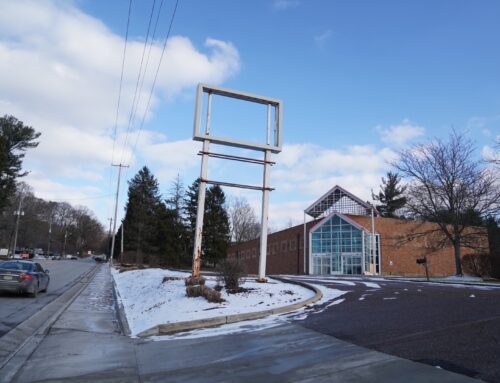Opinion | Why Meta’s hard-right turn induces a new level of fear for people like me
January 16, 2025
Mark Zuckerberg took a hard-right turn with Meta recently when he announced on Jan. 7 significant policy changes to Instagram and Facebook. The changes replace fact-checking teams with user-driven notes and end the company’s DEI programs, citing a desire to promote free speech and to reflect the political landscape. But they risk emboldening and promoting hate speech. Many critics, including myself, see this as an unscrupulous and opportunistic attempt by Zuckerberg to ingratiate his company and himself to President-elect Donald Trump, who has been known to espouse harmful ideologies and rhetoric that can be mitigated with efforts like fact-checking and similar checks and balances.
Many critics, including myself, see this as an unscrupulous and opportunistic attempt by Zuckerberg to ingratiate his company and himself to President-elect Donald Trump.
While the updated guidelines prohibit posting “content targeting a person or group of people on the basis of their protected characteristic(s) (in written or visual form),” the policy states that “we do allow allegations of mental illness or abnormality when based on gender or sexual orientation, given political and religious discourse about transgenderism and homosexuality.” In other words, the new policies allow for hate speech against society’s most vulnerable groups, such as queer and trans people like myself — not to mention racial minorities and immigrants. Leaked Meta training material obtained by The Intercept includes examples of licit speech under the new rules. These include: “Immigrants are grubby, filthy pieces of s—;” “Gays are freaks;” and, accompanying the picture of a 17-year-old girl, “Look at that tranny.”
“The company’s new guidelines prohibit insults about someone’s intellect or mental illness on Facebook, Instagram and Threads, as have previous iterations,” NBC News reported in reaction to the changes. “However, the latest guidelines now include a caveat for accusing LGBTQ people of being mentally ill because they are gay or transgender.”
While trans people account for less than 1% of the population, more than 41% of Trump’s presidential campaign ads were attacks on trans people, per PBS reporting.
LGBTQ advocacy nonprofit organization GLAAD released a statement on Friday, saying: “Meta and Mark Zuckerberg are now not only permitting and encouraging, but engaging in anti-LGBTQ hate speech … Meta is now an anti-LGBTQ company.” It also noted, “This is a complete break with best practices in content moderation and squarely moves the company into the territory of Truth Social and other extreme right-wing platforms that are unsafe for youth and advertisers.”
It’s important to note that this is not entirely new or even surprising for Meta. It is rather a somewhat dramatic exacerbation of a pre-existing trajectory. Recall that in March 2024, GLAAD released a report entitled: “Unsafe: Meta Fails to Moderate Extreme Anti-trans Hate Across Facebook, Instagram, and Threads.”
Over the past year, I have noticed an increase in both anti-trans content and comments on my feed, which in part precipitated my using Instagram less and less. But these new policies induce a new level of fear — not just for the kinds of rhetoric I may personally encounter, but because of how Meta is endorsing Trump and his allies’ cryptofascistic obsession with trans people and other minorities, and what the implications of fueling this kind of hatred are for the collective.
Additionally, social media is a lifeline for many trans people, who are able to virtually find community, offer/ask for mutual aid, medical advice and support in a world that so often oppresses trans people. Social media has been instrumental for me as I’ve navigated the oftentimes messy and complicated process of transitioning.
There are, of course, “real-world” consequences to emboldening online anti-trans hate speech. In 2023, the Human Rights Campaign, for the first time ever, announced a national state of emergency for LGBTQ+ people in this country. Between 2017 and 2021, the number of trans people murdered doubled. We are four times more likely than cisgender people to be “victims of violent crime.” Further, trans people “are ‘routinely denied’ in areas of marriage, employment, housing, and healthcare,” the American Addiction Centers (AAC) explain. “As a result, the transgender population sees rates of depression and mental health disorders that are much higher than the general population.”
These new rules will only intensify “minority stress,” as described by AAC:
“Minority stress is the theory that health disparities among minorities (whether ethnic, cultural, or, in this case, sexual) are usually due to the stressors induced by a larger, more dominant culture, which may be at odds with the values of the minority … For transgender people living in a majority heterosexual culture, minority stress takes the form of discrimination, victimization, harassment, and maltreatment.”
Suffice to say, Meta’s new policies will intensify “minority stress.” Support and community found on social media — in Facebook groups, via trans- and queer-run Instagram pages, and even other platforms, like Reddit — are often an antidote to this kind of pervasive violence and vitriol, and can even be vital to help access legal and medical support. These new rules are stifling some of the few options we have for accessing guidance and cultivating community, instead galvanizing, in those same spaces, the very violence we seek refuge from.
Search
RECENT PRESS RELEASES
Related Post


